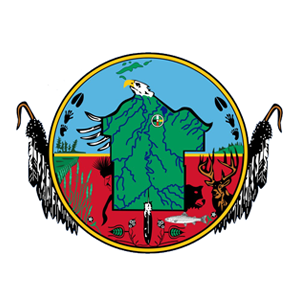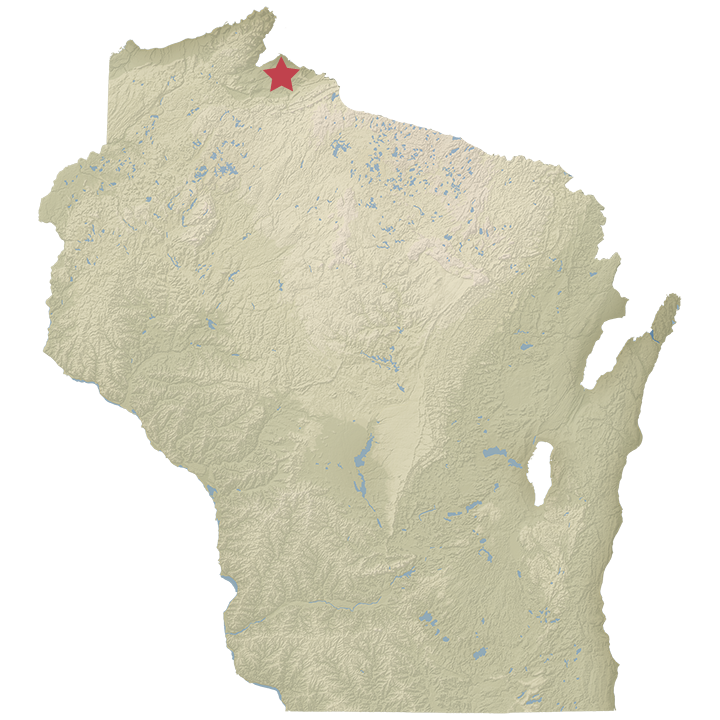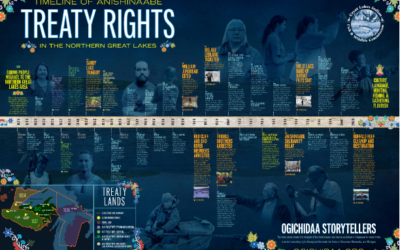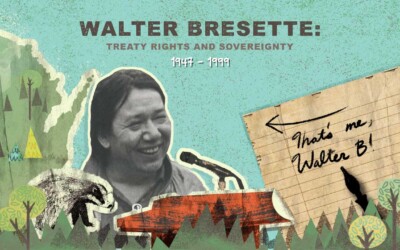
Brief History
The Bad River Band of Lake Superior Chippewa is located on the Bad River Indian Reservation in northwestern Wisconsin. The reservation was established by the 1854 Treaty of La Pointe with the United States federal government and is situated along the shores of Anishinaabeg-Gichigami (Lake Superior) and Chequamegon Bay. The 1854 Treaty also set aside 200 acres on Madeline Island for traditional gathering practices for its members. This island is a longtime capital and cultural or religious center of the Ojibwe people and nations throughout the Great Lakes region.
The 1854 Treaty finalized the ceding of the land south of Lake Superior. The treaty also established reservations for other Ojibwe bands of Wisconsin, including, Red Cliff, Lac du Flambeau, and Lac Courte Oreilles; the other two Ojibwe bands are the St. Croix and Mole Lake Nations. The influx of settlers into Wisconsin progressively displaced the Ojibwe from their traditional use of the ceded lands.
The Ojibwe (also known as the Chippewa or Anishinabe) of present-day Wisconsin are the descendants of a northern Algonquian people who originally lived in an extensive area mainly north of Lake Superior and Lake Huron. The Ojibwe began migrating across the Great Lakes region long before Europeans arrived. As the European fur trade penetrated into the Great Lakes region, the Ojibwe moved from the backwoods and upriver areas and established villages at points of trade throughout present-day Wisconsin and elsewhere in the region.
Soon after the organization of the new territory was established, a land cession treaty was signed that secured approximately half of the present state of Wisconsin from the Ojibwe, Lakota (Sioux), and Ho-Chunk. U.S. government officials sought the land cession to enable lumbering on a large scale along the eastern tributaries of the Mississippi River. The land cession treaty of 1837 provided legal access to these lands.
After lumbering began in the area, reports of copper deposits along the shores of Lake Superior led federal officials to push for new land cessions from the Ojibwe. Following the treaty of 1842, copper mining boomed and the region led the world in copper production by 1890.
Today, Bad River is the largest Ojibwe or Chippewa reservation in the state of Wisconsin. The reservation boundaries include lands primarily in Ashland County with some in Iron County along with six municipal townships. The reservation boundaries include 36 miles of Lake Superior shoreline and over 488 miles of rivers and streams. In 2003, Bad River bought back almost 24,000 acres of their original reservation to preserve the land and protect it from being developed.
Present Day
Members of the Bad River Band of Lake Superior Chippewa enjoy both on and off-reservation (ceded territory) hunting, fishing, and gathering rights as recognized in the 1854 Treaty and reaffirmed in Lac Courte Oreilles Band of Lake Superior Chippewa Indians et al v. Voight, 700 F2.342 (7th Cir. 1983) court decision.
The Bad River Band of Lake Superior Chippewa is the largest employer in Ashland County. Economic enterprises within the tribal nation include tribal administration, a health care clinic, social services, lodging, gaming, a grocery store, and more.
The Bad River Band of Lake Superior Chippewa tribal government is run by a seven-member council. The decision-making of the governing body is by majority rule and the chairperson only votes in the event of a tie. Elections for tribal government council are held annually. They have a law enforcement office with employees who are cross-deputized to serve on tribal land and in Ashland County in conjunction with the Ashland County Sheriff’s Department. Bad River also has a tribal court system that handles cases such as child welfare, divorces, and conservation violations. The tribal courts consist of four judges who must be admitted to the tribal bar to practice.
For additional information about the Bad River Band of Lake Superior Chippewa, consider the following resources:
- Bad River Band of Lake Superior Chippewa
- Powwow Trail: Keeping The Beat
- PBS Wisconsin Tribal Histories – Bad River Ojibwe History
The essay was altered and reprinted with permission from the Wisconsin Department of Public Instruction






